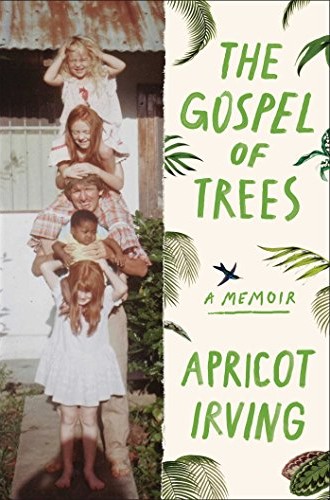An American childhood in Haiti
Apricot Irving writes with love—and hurt—about her father's misplaced desire to be a savior to others.
Portland-based journalist Apricot Irving, who spent her formative childhood years in Haiti as the daughter of Baptist missionary parents, writes: “By the time I was in my twenties, a recovering missionary’s daughter, most of the stories I had read about missionaries seemed to fall into one of two categories: hagiography or exposé; the Sunday School version of Lord of the Flies.” But, she continues, “the missionaries I had grown up with were neither marauders nor saints; Haiti was neither savage nor noble. The truth was far more complicated.” Irving’s commitment to dwelling on the complicated makes her beautifully written memoir a compelling, absorbing read.
The Gospel of Trees is the story of a daughter making peace with her father, an agronomist whose mission to save Haiti through reforestation superseded any desires his daughters had for a typical American childhood. It’s the story of a child observing and becoming “the other,” and of a woman reckoning with the legacies of colonialism and Christian mission work. It’s the story of a journalist making a chorus of voices heard, and of a mother making meaning of her own growing up with her now growing-up sons. What it’s not is sentimental.
The memoir proceeds chronologically, taking us from Irving’s parents’ 1973 courtship in California to her own family’s 2016 visit to Haiti. At the same time, it is punctuated with vignettes of 1490s Ayiti, from Columbus’s first encounters with the island to its imminent unraveling as the slave trade and sugar plantations took root, eroding both the soil and the freedom of its people. Through these brief historical interludes, Irving is clear: there can be no understanding of her own experience in a missionary family without an honest reckoning with Haiti’s past, including the Christian imperialist project that swept the globe in the 19th century.






